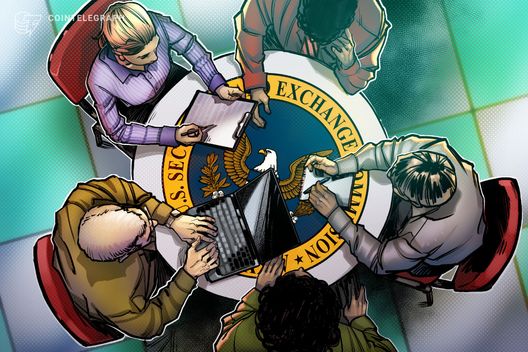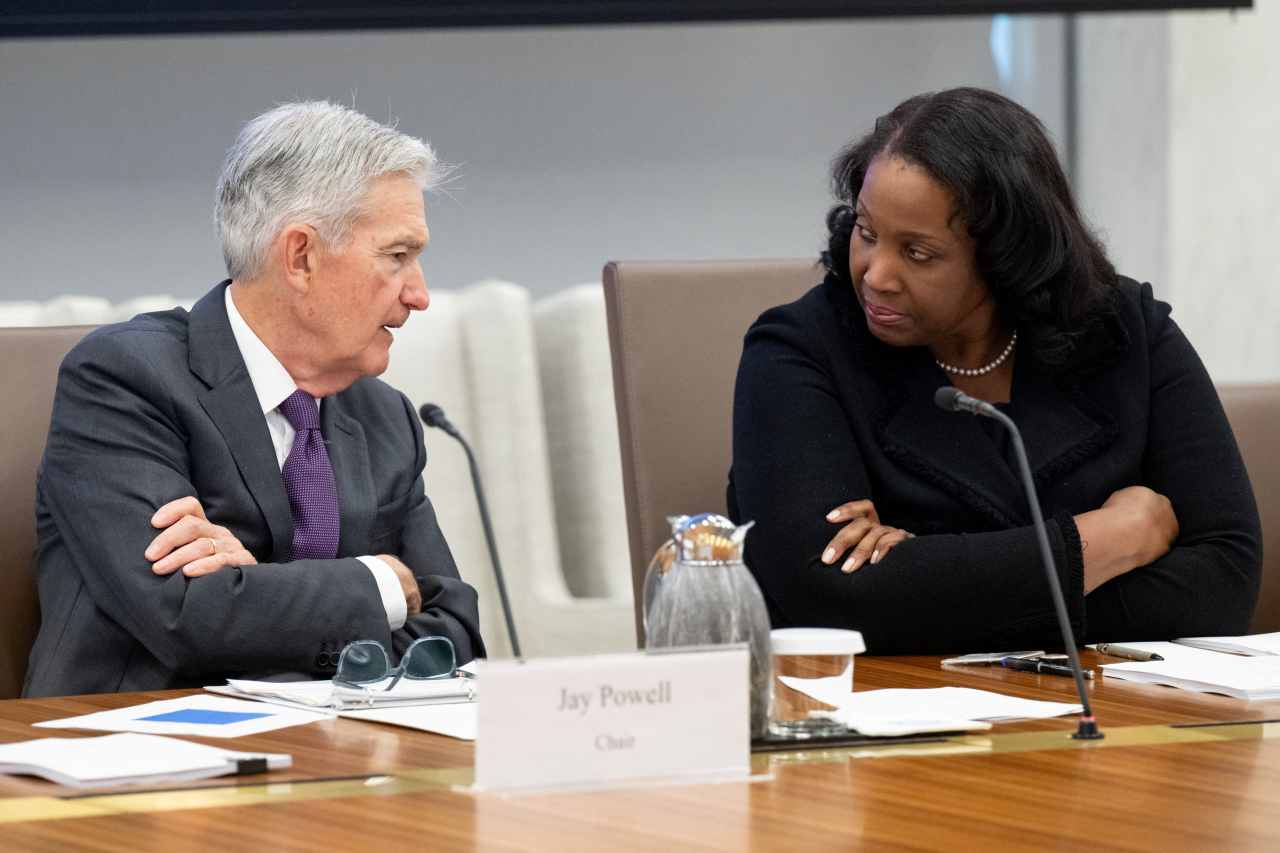Crypto industry insiders so far expect the long-awaited House of Representatives bill to set up rules for U.S. crypto markets will garner at least 30 Democrat voters when it reaches time for a vote as soon as Wednesday afternoon, alongside the 220-member majority of Republicans in the chamber.
Even as much of the sector prepares to celebrate one of its most consequential legislative wins, some in the industry still want to fix what they see as serious flaws in the Digital Asset Markets Clarity Act when it moves to the Senate. That may be an option, because crypto lobbyists have been advised by Senate contacts that the chamber expects to write its own bill, which will have some strong overlap with Clarity but may take different approaches in key areas.
"After years of regulatory unclarity and regulation by enforcement, the Clarity Act passing the House will be a major and welcome step, even if it isn’t perfect," Chen Arad, co-founder and chief experience officer at Solidus Labs, said in a statement to CoinDesk. When the bill gets to the Senate, he said he'd expect more work on "jurisdictional clarity" between the regulators — the Commodity Futures Trading Commission (CFTC) and Securities and Exchange Commission (SEC).
Behind the scenes, in venues including group phone calls among crypto executives and their lawmakers allies, leaders have urged the diverse crypto crowd to show a united front on the legislation to finally establish U.S. regulations for the industry, according to people familiar with the discussions. But the decentralized finance (DeFi) arm of the digital assets space — for one — has had significant reservations about the wording of the Clarity Act.
If the legislation passes with a bipartisan surge this week, it next heads to the Senate for consideration. House Republicans took to calling this "Crypto Week," and they're already moving on procedural votes Tuesday to tee up the more consequential bill votes, with the Clarity Act expected on Wednesday and the GENIUS Act on Thursday.
President Donald Trump urged Republicans to get behind the crypto legislative push on Tuesday, boasting in a post on Truth Social that it's putting the U.S. ahead of foreign competitors in China and Europe.
"We are leading the World, and will work hard with the Senate and the House to get even more Legislation on this passed!" Trump concluded.
Senate do-over?
The lengthy Clarity Act would establish a wholly new regulatory regime for oversight of the crypto markets, setting clear definitions for different types of digital assets and assigning the watchdog agencies to specific roles — most notably elevating the CFTC as a primary regulator of most of the crypto sector's trading, because its most popular asset (BTC) is a commodity.
While Senate Banking Committee Chairman Tim Scott has said the Clarity Act will be a "strong template" for the Senate's work, the Senate demonstrated with the other major crypto bill, the stablecoin-regulating Guiding and Establishing National Innovation for U.S. Stablecoins (GENIUS) Act, that it may favor its own version. House lawmakers openly expressed concerns as recently as Monday night that details of their Clarity Act will be ignored by their Senate counterparts. Last week, the House acknowledged it would dump its own stablecoin bill in favor of the Senate version rather than try to reconcile the two pieces of legislation.
Industry lobbyists have been eagerly awaiting the specific language of the Senate's own market structure bill, having so far only received a list of principles the key Republican lawmakers intended to follow in its drafting. As the lobbyists wait, the Senate Agriculture Committee — one of the two panels that needs to sign off on the legislation — is holding its opening hearing on the topic on Tuesday afternoon.
Among the points of debate between the chambers may be the maturity test in the Clarity Act that would effectively draw a border delineating whether a project belongs under the securities jurisdiction (SEC) or commodities oversight (CFTC).
"It's great that the bill encourages blockchains to decentralize," said Linda Jeng, founder and CEO of Digital Self Labs and an academic who has focused on crypto. "But there could be unintended consequences granting the SEC and CFTC with the authority to determine if a blockchain is 'mature.'"
That's one of the central tenets of the Clarity Act, the method by which a project can eventually move into a decentralized status that pulls it out of the reach of securities regulation. And it's a component that some within the DeFi space argue isn't being handled fairly.
DeFi insiders told CoinDesk that there's insufficient protection for self-custody of digital assets in the bill and that its maturity test would favor a few incumbent projects, making it harder for new entrants to compete. They also shared concerns about the need to make sure federal preemption over the patchwork of state rules is clear, and one executive called for expanding current language about exemptions for "digital commodity" transactions to be expanded to "digital assets," because DeFi projects would struggle if they were required to pre-determine whether each action did or didn't involve a commodity under the law's definition.
When the Senate takes the reins, the chamber will be further deluged with crypto interests looking for such changes. And if it writes a different market structure bill, the House may be pressured to vote on that rewrite without making further changes, if the situation with the GENIUS Act repeats. Congress is already likely to press past Trump's initial August deadline for crypto legislation, and the president has been eager for results.
In the end, even the Senate's work won't be the last word, because once a regulatory bill becomes law, the relevant watchdog agencies have to write their own rules to implement it — a complex process that can take more than a year to complete and longer to put it into effect.
But the House has to act first before any of the rest can begin.
House progress
As the Clarity Act vote approaches, digital assets lobbyists are laser-focused on the number of Democrats that ultimately add their yes votes with Republicans. During last year's vote on the predecessor bill, the Financial Innovation and Technology for the 21st Century Act (FIT21), 71 Democrats threw their hats in, though the Senate never acted.
This time, advocates hope for another big, bipartisan number that will give the Senate a hefty push on the House's market structure ideas. (The Senate's own GENIUS Act drew an impressive 68-30 approval in a chamber that's accustomed to scraping by with razor-thin votes.)
House Democratic leaders have chosen not to erect a roadblock for their own members on this bill, so they'll be free to vote as they wish, said Rashan Colbert, the U.S. policy director for the Crypto Council for Innovation, noting it as an important development removing headwinds from crypto-friendly Democrats.
"If we can get an overwhelming bipartisan vote here, then this clearly becomes a must-do priority," Colbert said in a CoinDesk interview. "If it's a disappointing number, then I think it becomes harder," he added.Representative Maxine Waters, the ranking Democrat on the House Financial Services Committee, has been trying to marshal a resistance to the bill. She has some prominent allies in the AFL-CIO and in the North American Securities Administrators Association, the organization of state-level securities regulators.
Consumer advocates have also weighed in, with a coalition of them saying in a letter to Congress that the Clarity Act "guarantees the crypto industry will be given kid-glove treatment by captured regulators, putting investors and the economy at significant risk."
Still, the industry is counting on a wide margin of Democrat support — especially from younger Democrats that have routinely bucked their leadership on crypto matters.
"It was a long road to get here, and I think that it's not practical to believe that we're going to be able to spin up this type of momentum again," CCI's Colbert said. "For those who want regulation, this is an important moment to focus and be supportive of the process."
Read More: House Gears Up for Crypto Market Structure Vote on Wednesday, Stablecoins Thursday

 2 months ago
86
2 months ago
86








 English (US) ·
English (US) ·